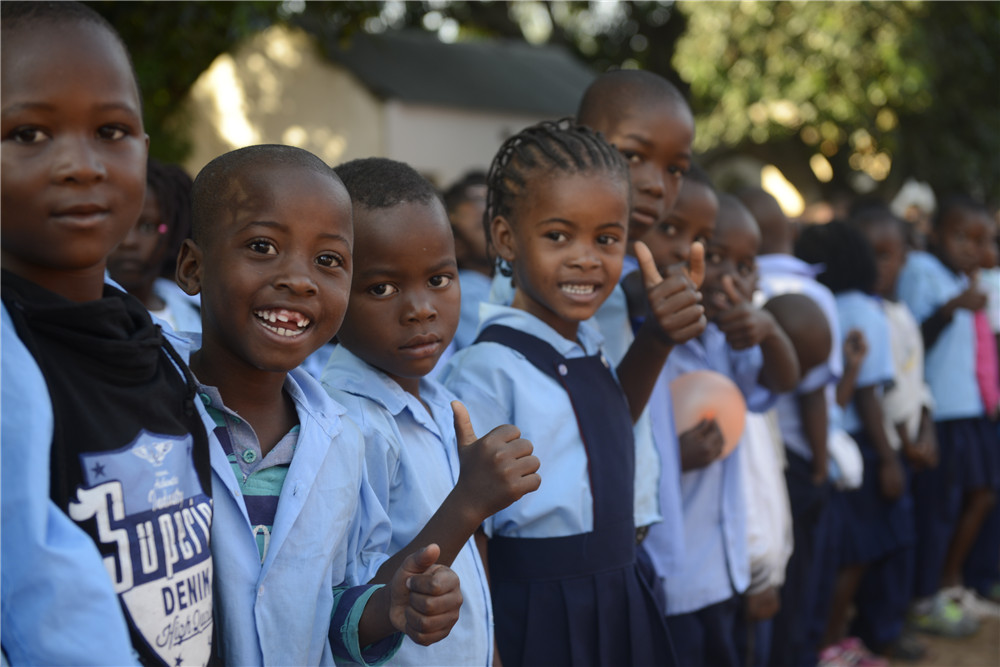New Chinese TV 'star' rises across Africa


This game-changing service and business model was underpinned by StarTimes' technology.
Since 2008, the company has seized the chance to boost investment in TV technology and built four basic networks, comprising signal relay, direct broadcast satellite, digital terrestrial TV transmission and online video.
StarTimes' TV signal now covers the entire African continent.
More than 480 programs in 11 languages, from local stations to China's mainstream media, world-famous channels and StarTimes originals, are broadcast via the platform, with topics ranging from news to sports, along with movies and fashion.
StarTimes is now striving to promote its digital TV services in rural areas of Africa as part of its effort to carry out the Access to Satellite TV for 10,000 African Villages project initiated by China in 2015.
It is a challenging task, but for many African people it is an amazing gift and a gateway to the outside world.
Joseph Runyenje Lopeyok, an ardent soccer fan, lives in Likii village, Laikipia county, in central Kenya.
He was able to watch this year's World Cup tournament thanks to the clear signals guaranteed by the StarTimes decoder installed in his backyard.
"Even my wife and daughters, who are not normally soccer fans, were enticed by the games," Lopeyok said.
'A natural connection'
The first time he traveled to Africa, Pang felt a kind of "natural connection between me and the African people".
"Once I asked an African leader what the most complex human relationship in the world was, and without a second thought he said: 'That between a mother-in-law and a daughter-in-law'," Pang said.
That answer is echoed in traditional Chinese culture and countless TV shows.
StarTimes' Sino Drama channel is a big hit in Africa. It broadcasts popular Chinese TV dramas, such as Doudou and Her Mother-in-Law and The Journey of the Flower, dubbed into different languages.
In 2011, the company established a translation and dubbing center. With output capacity of 10,000 hours, the center dubs programs into eight languages: Chinese, English, French, Portuguese, Swahili, Hausa, Yoruba and Luganda.
To attract more talent, StarTimes also holds TV drama dubbing competitions, and the winners are offered jobs at the company's Beijing headquarters.
"One principle we always stick to is that we will never lower our standards in the African market. Providing a less qualified service would not only be disrespectful to the audience, but also disrespectful to the arts," Pang said.
On its 43 original channels, home-produced dramas, kung fu shows and dubbing competitions are all popular with African audiences.
"Compared with many other foreigners, African students are more gifted in learning Chinese, either in terms of pronunciation or comprehension of the language," Tchiegue said.
That's part of the reason African voice actors and actresses have few cultural barriers in dubbing Chinese TV series, especially family dramas.
The connection between Chinese people and Africans constantly inspires StarTimes to move forward.
To make more Chinese TV shows accessible to African audiences in rural and suburban areas, StarTimes sent out TV caravans to provide broadcast services.
Wherever the caravans went, children chased after them and danced to the music they played, while villagers would sit on chairs they brought with them, happily waiting for the show to begin.
China has been adhering to the principles of sincerity, real results, affinity and good faith in its African policy. In Pang's view, the benefits African people can gain from such cooperation are fundamental to the principles.
StarTimes is expanding and accelerating its localization year by year.
urrently, it employs more than 4,000 people in Africa, with locals accounting for more than 95 percent.
Meanwhile, there are more than 7,000 StarTimes agents across Africa, and they have generated around 50,000 jobs. "Any company that really wants to take root in Africa should make an effort to boost social and human development in Africa. Creating more jobs is part of its social responsibility," Pang said.
























